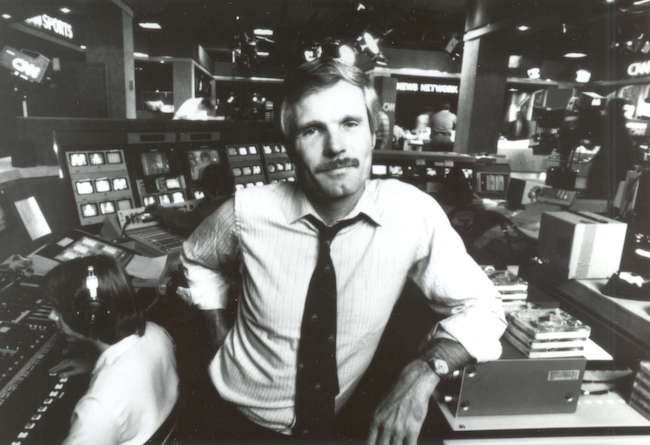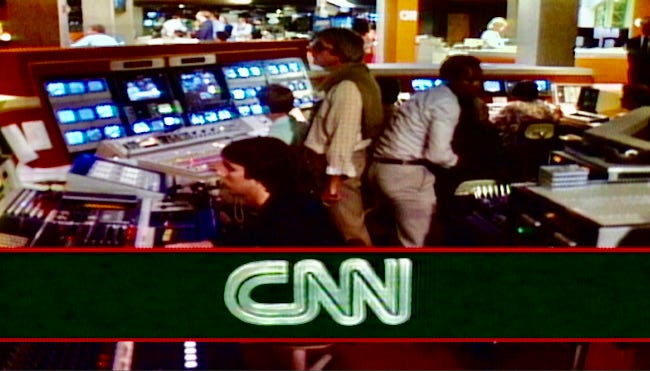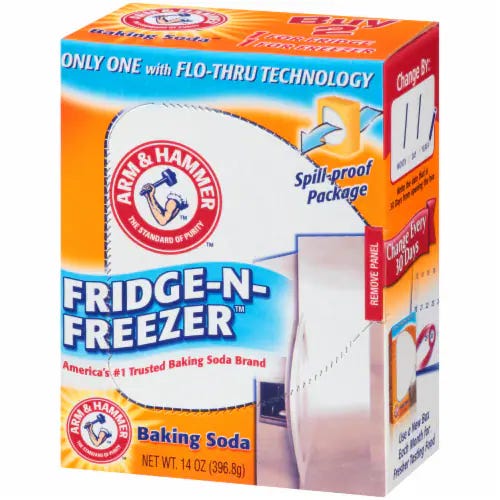Information Sickness
Wa-a-a-a-a-a!
When I worked at CNN, I couldn’t get away from the news. Literally. I was surrounded by dozens of television sets tuned to my employer’s product. I could no more escape their glare than an inmate can bug out of Supermax.
The newsroom’s vibe was dictated entirely by the words and images on those screens.
“Big news days” got us amped. “Slow news days” left us tired and depressed, bored and listless.
There were a lot more slow news days than big ones.
Information Sickness
A few hours after arriving for our shift, we could repeat reporters’ voiceovers word-for-word. “If it bleeds, it leads” images burned into our brains.
Not to put too fine (or obscure) a point on it, CNN was an Ideal Org for J-schoolers. We created endless negative engrams – that bounced back to bite us us.
In other words, the news fucked us up. We were information sick.
We followed the news, the news followed us
How could I tell we were information sick?
For one thing, at shift end, we wage-challenged workers drank like a fish; multiple rounds of two-for-one drink specials were SOP.
Inspired by Ted “Mouth of the South” Turner, the CNN elite drank like fish and snorted coke like Tony Montana.
For another, our physical health sucked.
Pasty-faced white trustafarian “video journalists” stumbled around the cramped newsroom, hungover AF. Colds swept through our ranks like COVID on steroids (or something like that).
My 23-year-old roommate Brian died of a heart attack. Does my beloved boss’ drunk driving death count? To me, it does.
Breaking news breaking us
In 1984, I left the hard news biz to produce a weekly magazine-style show for Superstation WTBS.
Since then, news coverage exploded.
Not only do CNN, Fox and MSNBC spew news 24/7, thousands of websites blanket the web with instant actuality.
News alerts are like French bulldogs in Austin: they’re everywhere. Breaking News alerts appear on desktop computers, laptops, tablets, smart phones and watches.
The result is a terabyte of not good. Information sickness on a massive scale.
Down with the Sickness
The condition is rarely diagnosed and hardly discussed, but its effects are legion.
For example, commentators lament our political polarization. They blame it on socioeconomics, race, religion, disinformation and/or tribalism.
Ironically, the split is the logical end product of news proliferation, and the information sickness that follows. Think of it this way…
Information sick consumers lose their ability to analyze information. There’s simply too much to process. But they’re addicted to the news crack pipe.
To feed the e-monkey on their back, they gravitate to news that comes in pre-digested packages with a predictable political perspective.
Analytical thinking? Ain’t nobody got time for that!
Right wingers never need wonder what the Fox says. MSNBC viewers can rest assured that they’re never more than five minutes away from their favorite orange bogeyman. And never the Twain shall meet.
Bottom line? We’re sick of each other because we’re down with the sickness.
The flip side of the same coin
I’ve yet to see a study linking America’s depression epidemic to information sickness, but common sense tells us it’s a significant factor.
How can you be happy when the media’s constantly telling you the world – your world – is falling apart?
That said, not everyone suffering from information sickness is afflicted by the journalistic strain.
Entertaining Ourselves to Death?
Large swathes of educationally-challenged Americans have switched off the news. Their information sickness is more like sea sickness: they’re adrift in an ocean of entertainment.
Phone-compatible streaming services – offering unlimited access to a limitless supply of audio and video options – have put “peak entertainment” in the palm of their hand.
This astounding over-choice leaves news-averse consumers dazed and confused, distracted and dissatisfied with their lack of celebrity status.
The symptoms may be different, but entertainment OD is the same information sickness rearing its Hydra-like heads.
The cure?
Divide information into two categories: everything I’ve described above and what’s going bad in your refrigerator (BIYR).
Both can you make you sick. BIYR information less likely so. We can react to our fridge’s contents’ changing condition. Toss the sour milk, monitor the bacon supply, shove some Arm & Hammer in the corner, etc.
Concentrating on your proverbial refrigerator – what you’re doing rather than people and events you can’t influence or control – protects you from the dangers of externally-generated information overload.
Put another way, living in your moment rather than someone else’s moment gives you a higher chance of… wait for it… happiness.
Not so fast Mr. Bond!
Information sickness is a shared disease, feeding off the aforementioned human desire for connection.
If we didn’t talk about political or entertainment news, what would we talk about?
Don’t get me wrong: friendships, romantic relationships, group activities and child rearing force us to focus on hyper-local information. But now even that’s under threat.
AI loves you! Your money too!
Speaking of BIYR information, you can buy a refrigerator that keeps track of its contents and suggests recipes based on what’s in the ice box. Automated ordering and expiry date notification are on their way.
In fact, AI is set to “solve” more and more “refrigerator-level” personal challenges. Truth be told, it’s set to take over your life for your fun and its profit. Like this…
“You seem a bit down. You have a hole in your schedule. Would you like me to contact Jonathan’s AI assistant and see if he’s free to meet at Bob’s Chop House for a cigar and a skinny Margarita?”
Turn off, tune in, drop out

At some point, a small part of our population will recognize and address their information sickness.
Seeking relief, they will embrace a modified version of Timothy Leary’s hippie-era admonition “Turn on, tune in, drop out.”
Substitute “turn off” for “turn on” and redefine “dropping out” as an information vacation, rather than an off-the-grid existence.
And there you have it: a greater sense of self. Harmony with nature and others. In theory.
And I don’t want a pickle…
Truth be told, very few of us are aware we’re beset by information sickness, never mind looking for ways to get well.
In my own defense, I never wear a headset when riding my Bonneville. The longest journey starts with an unsullied throttle blip. What’s your treatment program?










Thanks for the trip down memory lane. I feel like working at CNN/NBC prepared me for the overload that everyone is experiencing today. I’ve been a fan of absorbing daily events since I was a kid, the paper route and just feeling like having a sense of what is happening around me, by I think good writers at the time, was comforting. It’s gotten out of hand for sure and learning discernment is not easy sometimes. Solution? Focus on the issues that are important to you, and check in on the people around you, physical or relationship wise. I like focusing on the environment and climate change impacts, including the weather, which has gotten incredibly riveting. It’s important to maintain vigilance, even if all we can do is bear witness. Yes, then take a walk and enjoy the sunset, or whatever floats your boat. Life is precious and mysterious for sure. We humans have a lot to embrace and let go of. May we dance our way to a shared cosmic understanding of our own worth.
A comedian who's name I can't recall said if a friend came to your house every night and just told you all the bad things that were happening around the world you would not be friends with them anymore.